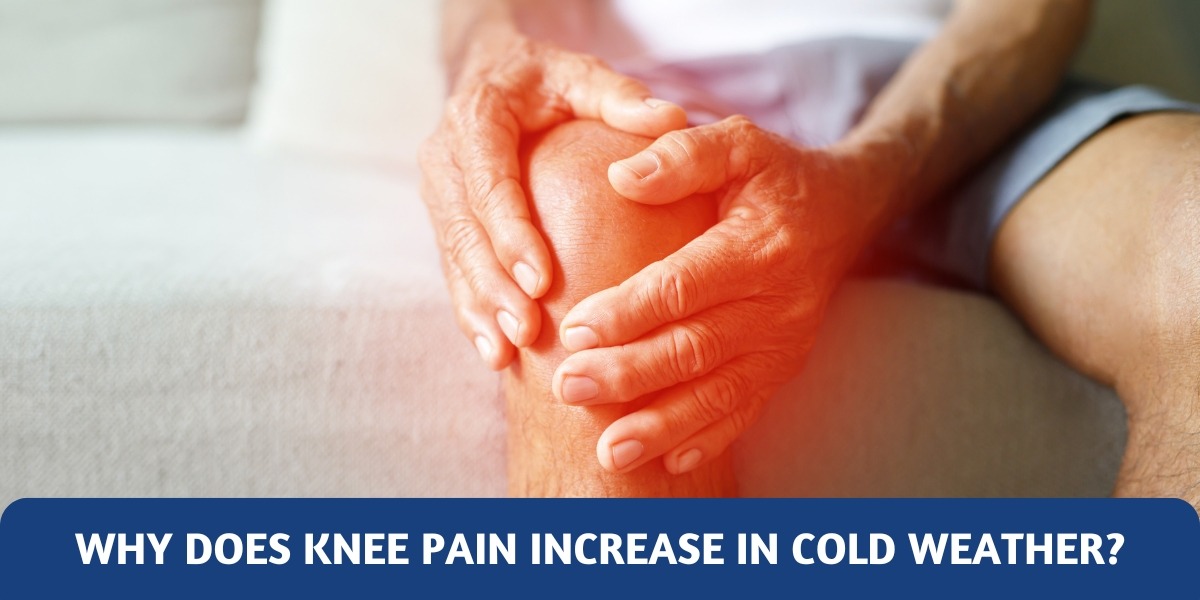Understanding the Connection Between Cold Weather and Knee Pain
As the temperature drops, many individuals notice increased joint pain, particularly in the knees. This phenomenon is not merely anecdotal; scientific evidence supports the correlation between colder weather and heightened knee discomfort. Understanding the underlying reasons for this increase in pain can help those affected manage their symptoms more effectively.
Physiological Responses to Cold Weather
Cold weather impacts our bodies in various ways, primarily through physiological responses designed to conserve heat and maintain core body temperature. These responses can inadvertently contribute to increased knee pain:
- Vasoconstriction: In cold weather, blood vessels constrict to preserve heat, leading to reduced blood flow to extremities, including the knees. This can cause stiffness and discomfort.
- Synovial Fluid Thickening: The synovial fluid that lubricates joints can become thicker in colder temperatures, reducing its effectiveness and causing joints to feel stiff and sore.
- Muscle Tension: Muscles around the joints tend to contract to generate heat, leading to increased tension and pressure on the knees, which can exacerbate pain.
Barometric Pressure and Joint Pain
Changes in barometric pressure are also linked to joint pain, including in the knees. When barometric pressure drops, as often happens before a storm, tissues in the body can expand. For individuals with arthritis or other joint issues, this expansion can increase pressure on the joints, leading to pain and discomfort.
Impact of Cold Weather on Arthritis
Arthritis sufferers are particularly susceptible to increased knee pain during cold weather. The reasons include:
- Inflammation: Cold temperatures can trigger inflammatory responses in arthritic joints, leading to increased pain and stiffness.
- Decreased Activity Levels: Winter weather often leads to reduced physical activity, which can cause joints to become stiffer and more painful due to lack of movement.
- Psychological Factors: The gloomy, cold weather can affect mood and perception of pain, making it feel more intense.
Managing Knee Pain in Cold Weather
There are several strategies to manage knee pain during colder months:
- Staying Warm: Dressing in layers, using heating pads, and ensuring your living environment is warm can help keep joints flexible.
- Regular Exercise: Engaging in low-impact exercises like swimming, walking, or cycling can keep joints moving and reduce stiffness.
- Hydration: Maintaining proper hydration helps keep synovial fluid at the right consistency, aiding joint movement.
- Diet: A diet rich in anti-inflammatory foods such as omega-3 fatty acids, antioxidants, and vitamin D can help reduce inflammation and joint pain.
- Physical Therapy: Working with a physical therapist can provide tailored exercises and treatments to manage knee pain effectively.
Medications and Supplements
For some, over-the-counter or prescription medications may be necessary to manage knee pain during cold weather. Common options include:
- Nonsteroidal Anti-Inflammatory Drugs (NSAIDs): These can help reduce inflammation and pain.
- Pain Relievers: Acetaminophen can be effective for pain relief.
- Supplements: Glucosamine and chondroitin supplements may help maintain joint health.
Alternative Therapies
Alternative therapies can also be beneficial in managing knee pain during cold weather. These include:
- Acupuncture: This traditional Chinese medicine practice can help reduce pain and improve joint function.
- Massage Therapy: Regular massages can help reduce muscle tension and improve blood flow to the joints.
- Yoga and Tai Chi: These practices promote flexibility, balance, and overall joint health through gentle movements and stretching.
Preventative Measures
Taking preventative measures can help reduce the risk of knee pain in cold weather:
- Weight Management: Maintaining a healthy weight reduces stress on the knees.
- Proper Footwear: Wearing supportive shoes can help align the body correctly and reduce knee strain.
- Joint Protection: Using knee braces or supports during physical activities can help protect the knees from excessive stress.
Consulting a Healthcare Professional
If knee pain persists or worsens during cold weather, it is important to consult a healthcare professional. Consult Dr. Murtaza Adeeb a renowned Orthopedic doctor in Pune. Contact us today at this number +91 8983073980 or use our convenient online appointment request form.
Understanding the reasons why knee pain increases in cold weather and implementing effective management strategies can significantly improve the quality of life for those affected. By staying warm, and active, and seeking professional advice when necessary, individuals can navigate the colder months with reduced discomfort and enhanced mobility.







